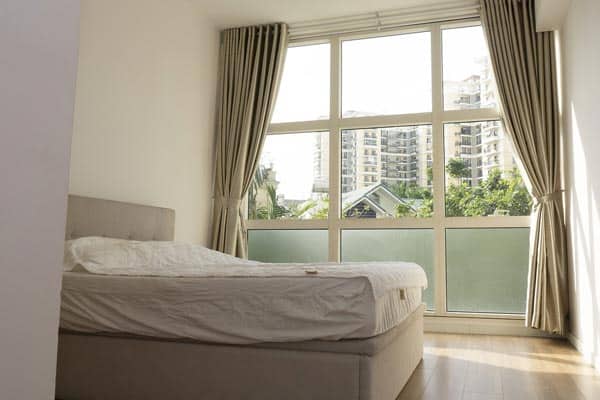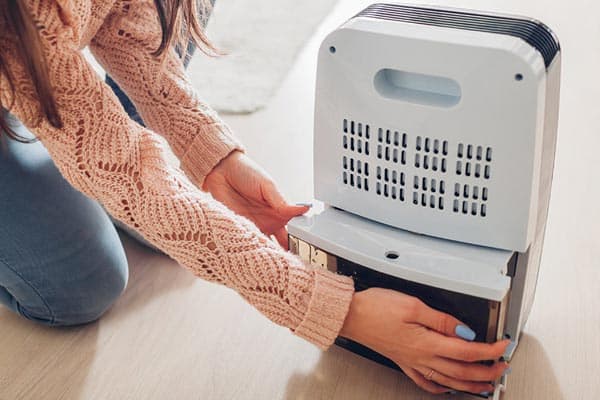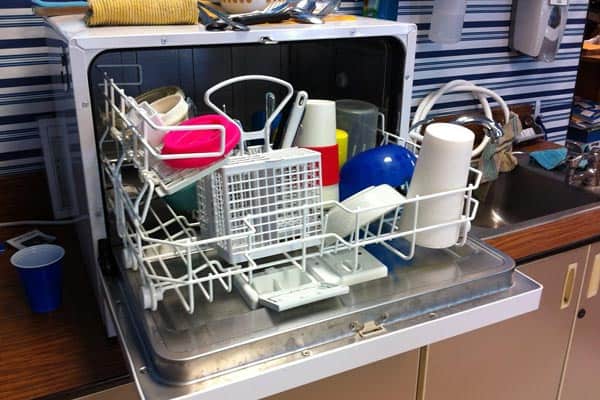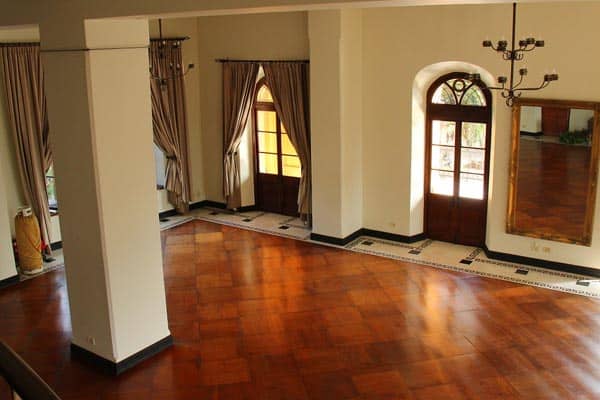Understanding the Key Differences in a Studio Apartment Vs. One Bedroom
No matter if you’re looking for your first apartment or searching for a new home in your local area, you have a lot of decisions in front of you.
You must find a place that meets your needs, and this could come down to deciding between a one-bedroom or studio apartment. However, many people don’t know what the difference between the two is.
Studio Apartment Vs One Bedroom
The biggest difference between a studio apartment and a one-bedroom unit is that the one-bedroom unit comes with a separate bedroom area that is closed off and distinct from the main kitchen and living area. A studio apartment is a smaller self-contained space where you have everything but the bathroom in a single room.
Before you make your move, you must understand what each space is, what it offers, and the main differences. We’re going to outline this for you below.
Defining a Studio Apartment
A studio apartment setup is a single room that puts your bedroom, living room and eating area all in one open space.
There are no separations or walls that divide the areas, but U.S. housing laws mandate that the bathroom has to be separate. This type of apartment has the idea that you get a single bigger room that serves as a main living area.
It can take some time for people to adjust to the thought of sleeping in an area that is directly attached to your kitchen or not having a space to be more private in your bedroom if you have guests over.
Studios usually appeal to single renters in urban areas where normal rental prices are very high. It could save you a lot of money to go with this route, but you do sacrifice some privacy and space.
Pros and Cons of Renting a Studio Apartment
Studios tend to be very cost-effective when you compare them to other types of rentals, and they’re fairly easy to maintain because you’re working with a much smaller space. Studios can also cost less to cool and heat because you get less square footage overall.
However, you also get stuck living in a single room, and this can be a shock to the system if you go from a more traditional setup.
You might have a harder time hosting guests in this type of apartment, and your bed is always in plain sight without any room to hide the mess. Do you want people to eat and leave crumbs where you sleep?
Defining a One-Bedroom Apartment
Just like you’d figure out from the name, a one-bedroom apartment has a bedroom that is separate from the main living area.
The bathroom, bedroom, and kitchen are all clearly defined and separate with this design, unlike in a studio apartment.
Depending on the size, you could get a dining room or living room that combines with your kitchen area in an open floor concept. A bigger one-bedroom apartment might come with a separate eating area.
Generally speaking, a one-bedroom unit is usually larger than a studio, and this allows you to entertain people as you see fit without sacrificing your privacy.
Pros and Cons of a One-Bedroom Unit
A one-bedroom unit will give you more privacy overall, and having a bedroom that is separate from the main living area allows you to close your doors when guests arrive and keep them in the living room.
You also don’t have to try and quickly clean up messes every time someone drops by. It’s also possible for a one-bedroom to have less space than a studio, but this typically isn’t the case. You can get more storage space too.
The Main Differences Between a One-Bedroom and Studio Apartment
When you’re trying to decide if you want a one-bedroom or studio apartment, you have to weigh the main differences as efficiently as possible. They include:
Lifestyle
Depending on the lifestyle you prefer, you might want more room to go about your daily routine. If you enjoy hosting parties or having family or friends over, a one-bedroom unit gives you more space for everyone to relax.
When you live in a studio apartment, your bed can become part of the seating area, and this means that your guests get constantly surrounded by your items.
They won’t have much room to spread out, and it’s generally more cramped to try and entertain in a studio over a one-bedroom.
If your lifestyle typically includes entertaining family or friends, redecorating, or collecting the latest tech and gadgets, a one-bedroom is usually a better choice. However, if you’re someone who likes to stay at home and live a minimalist lifestyle, you could get along just fine in a studio.
Location
If the size doesn’t matter when your apartment hunt, the location can be everything. Studios generally have a more affordable price point, and they’re easier to find in urban areas than one-bedroom units. You should consider:
- $1,188 for a studio unit in the center of the city.
- $1,188 for a one-bedroom unit that is a 20-minute drive the city limits
Occupancy
If you’re moving in with someone else, it’s usually always the better option to get a one-bedroom unit over a studio because you get more storage, living space, and more comfort for more than one person living here.
However, studio apartments can save you a lot of money when you live with a partner or a roommate.
Even though they’re bigger than efficiency apartments, studio apartments usually end up feeling crowded when you have multiple people living in the space.
You need both storage and living space, so you’ll have to downsize if you want to split a studio unit with another person.
Price
It’s almost always going to be cheaper for you to rent a studio apartment over a one-bedroom unit. However, you have to decide if saving on rent is worth the space you sacrifice.
Rent for a studio apartment is usually much cheaper than a one-bedroom, depending on the luxury and square footage.
However, the increased size and space you’ll get in a one-bedroom can be worth it to some people.
Remote Work
You can work from both a one-bedroom unit and a studio apartment without any huge issues, but it’s not necessarily comfortable or practical to sleep, eat, relax, and work all in one space.
A studio apartment may not give you the flexibility you need to create a healthy work-life balance, and this is something you should heavily consider if you plan to work remotely indefinitely.
If you plan on working from home for the foreseeable future, a one-bedroom apartment is most likely going to be a better fit for your needs.
You’re more likely to have flex space like a corner of your living room or a hallway that you can set up as a micro office.
Bottom Line
A studio apartment and a one-bedroom apartment may not look like they have huge differences at first glance, but you now know that there are significant ones to consider.
If you want space, your best option would be to go with a one-bedroom unit. If you’re someone who wants to save money and doesn’t mind not having a ton of room, a studio could be a viable option.






